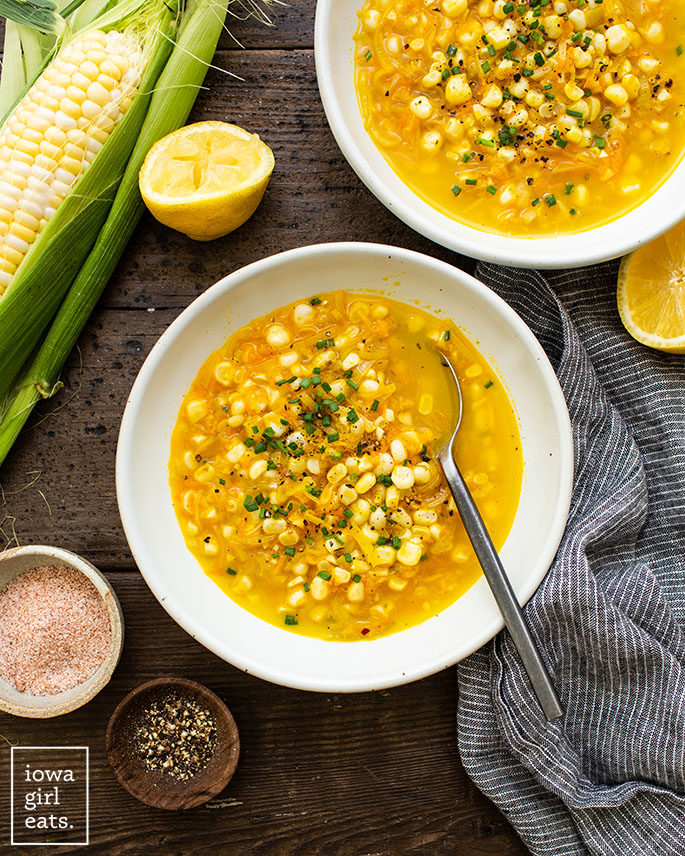Gerber, Beech-Nut, HappyBABY and Earth’s Ideal Organic and natural newborn foodstuff check significant for arsenic, lead, cadmium and mercury, new report exhibits
Gerber, Beech-Nut, HappyBABY (built by Nurture) and Earth’s Ideal Organic toddler foodstuff (designed by Hain Celestial Team) complied with the committee’s ask for to submit internal tests paperwork.
Campbell Soup, which sells Plum Organics child foodstuff, Walmart (its personal brand name is Parent’s Option) and Sprout Foodstuff declined to cooperate, in accordance to associates of the subcommittee.
The committee mentioned the conclusions present the need to have for far more stringent regulation of industrial baby food stuff, together with Fda criteria for significant metals, as effectively as obligatory testing for weighty metals.
“Over the final ten years advocates and experts have introduced this to the interest of the Foodstuff and Drug Administration,” subcommittee Chair Raja Krishnamoorthi (D-Sick.) explained to The Washington Put up. “The Food and drug administration need to established requirements and regulate this field considerably far more closely, starting up now. It is stunning that mothers and fathers are fundamentally becoming entirely remaining in the lurch by their governing administration.”
The Fda claimed it was examining the findings.
Arsenic is ranked as No. 1 just one between naturally happening substances that pose a important chance to human wellness, according to the Division of Wellbeing and Human Services’ Agency for Harmful Substances and Disorder Registry. While there are no highest arsenic ranges established for toddler meals (other than for toddler rice cereal, wherever the optimum is 100 parts per billion inorganic arsenic), the Food and drug administration has set the utmost allowable degrees in bottled water at 10 ppb of inorganic arsenic.
Though Hain usually only tested its elements, not completed solutions, documents present that the firm applied a lot of substances in its baby foods with as a great deal as 309 ppb of arsenic. The tests data shows that Hain utilised at minimum 24 ingredients that contained much more than 100 ppb of arsenic.
Responding right after publication, Hain spokeswoman Robin Shallow said, “Earth’s Finest has continually supported initiatives to minimize naturally taking place heavy metals from our foods offer.”
Lead is No. 2 on the ATSDR’s record of possible wellness threats. There is no federal common for guide in infant food stuff, but there is a escalating consensus between health gurus that direct amounts in infant meals must not exceed 1 ppb. The American Academy for Pediatrics, the Environmental Protection Fund and Consumer Experiences have all, in some sort, named for a 1 ppb amount in foodstuff and beverages that babies and children take in.
Beech-Nut used components containing as much as 886.9 components per billion of lead, according to the details supplied to the committee. It made use of lots of components with high lead rely, together with 483 that contained in excess of 5 ppb guide, 89 that contained in excess of 15 ppb guide, and 57 that contained about 20 ppb direct.
“Beech-Nut set up significant metallic testing requirements 35 yrs ago, and we constantly assessment and reinforce them anywhere probable,” said Jason Jacobs, vice president of food protection, good quality and innovation. “We seem ahead to doing the job with the Food and drug administration, in partnership with the Newborn Foods Council, on science-primarily based expectations that meals suppliers can implement throughout our field.”
In addition, Gerber used carrots that contains as a lot as 87 ppb of cadmium and Nurture marketed little one foodstuff with as substantially as 10 ppb of mercury. And even when toddler foodstuff tested around companies’ inner limits for these large metals, they were being sold anyway.
Gerber stated it hasn’t seen the report and could not comment precisely on the findings.
“Exposure to these poisonous hefty metals has an effect on babies’ mind development and nervous technique, it influences their behavior, permanently decreases their IQ and, if you want to boil it down to bucks, their lifetime earnings possible,” states Tom Neltner, substances coverage director for the Environmental Defense Fund, which has worked on lead in food stuff for 25 a long time.
The committee launched the investigation right after mastering of large ranges of arsenic in some infant foods in a study by Balanced Infants Brilliant Futures, an alliance of nonprofit organizations aimed at measurably cutting down babies’ exposure to poisonous chemical compounds.
“What they did was consider food off store shelves and exam it. We stated we need to go straight to the providers and inquire for their supplies,” Krishnamoorthi stated. “For the corporations that didn’t participate, it raises the problem that they could possibly have data that indicates the toxic metals in their meals may possibly be even increased than their opponents.”
He explained the Trump administration was produced aware of the risks that commercial toddler meals could have heavy metals for the duration of a private industry presentation to the Fda on Aug. 1, 2019, from Hain (Earth’s Finest Organic and natural), which discovered that company procedures to test only ingredients, not last items, might not precisely characterize the amounts of toxic heavy metals in child foods.
In all of the Hain toddler foodstuff tested, inorganic arsenic amounts ended up amongst 28 per cent and 93 percent better in the finished solutions than just in components by itself.
“We are upset that the Subcommittee report examined out-of-date information and does not reflect our current methods. The report also inaccurately characterised a meeting with the Fda,” Shallow stated. She extra that Hain took several steps soon after the conference to decrease the concentrations of hefty metals in concluded items, switching out components this sort of as brown rice and conducting more screening of concluded merchandise just before shipping.
“I’d hope that corporations would start out testing not only their components but their completed merchandise,” Krishnamoorthi explained, “and I’d hope that businesses then labeled their items to show the presence of these harmful substances, and would sooner or later phase them out.”
The more substantial difficulty, he claims, is that the Food and drug administration requirements to create authorized criteria for every single of these weighty metals in infant food items.
“The Food and drug administration will take publicity to harmful aspects in the food stuff offer really severely, especially when it comes to preserving the health and fitness and protection of the youngest and most vulnerable in the populace,” the Fda wrote in a assertion. “Toxic aspects, like arsenic, are present in the environment and enter the meals provide by soil, h2o or air. Due to the fact they simply cannot be entirely taken off, our aim is to lessen exposure to poisonous aspects in food items to the greatest extent possible and we have been actively doing work on this issue working with a danger-primarily based solution to prioritize and concentrate on the agency’s attempts.”
Gerber, which is owned by Nestle, is the largest baby foods organization and a single of the principal brands readily available to small-revenue households that depend on Exclusive Supplemental Diet Plan for Ladies, Infants, and Young children (WIC) added benefits. The knowledge Gerber offered to the committee reveals that the business used rice flour incredibly significant in arsenic, carrots high in cadmium and a quantity of components higher in direct.
“As mentioned in our 2019 response to the congressional inquiry, the elements in issue take place by natural means in the soil and water in which crops are grown,” reported Dana Stambaugh, a Gerber spokeswoman. “To minimize their existence, we choose various ways such as prioritizing developing locations based mostly on local climate and soil composition approving fields right before crops are planted dependent on soil screening rotating crops according to most effective obtainable science and tests of generate, drinking water and other substances.”
According to the report, Beech-Nut, a person of Gerber’s main rivals, routinely utilised substantial-arsenic additives and elements that contains up to 344 ppb cadmium.
“We function carefully with our suppliers to discover the very best farms and areas to procure the maximum good quality components,” explained Jacobs. “We examination every shipping of fruits, greens, rice and other substances for up to 255 contaminants to confirm that every single shipment meets our strict excellent criteria.”
Krishnamoorthi suggests that the Hain presentation to the Food and drug administration exposed that obviously happening poisonous major metals in soil or drinking water could not be the only issue causing the unsafe ranges of poisonous large metals in child foodstuff. Infant foods producers may be introducing ingredients into their products, these kinds of as vitamin and mineral mixes, that comprise superior concentrations of harmful large metals.
The report also uncovered superior concentrations of lead, arsenic and cadmium in Pleased Loved ones Organics (Nurture) child foodstuff.
Main executive Anne Laraway stated that several of the final results presented as section of the 2019 report were being gathered dependent on a little portion of their portfolio, “and are not agent generally of our entire selection of goods at-shelf currently. Also, the info factors incorporate two outliers of higher guide success, not replicable in our screening, but which we integrated for completeness and transparency. We hope that the report — which we have not viewed — and people sharing the info would not insinuate to the public that there is a threat current.”
The European Union has set the greatest direct degree in toddler method to 20 ppb. The examination results of several of these baby foodstuff and their substances much exceed that stage. In accordance to Krishnamoorthi, manufacturers’ internal benchmarks allow dangerously large amounts of toxic major metals, and this report reveals that suppliers have normally bought food items that exceeded even their personal set up amounts.
Thomas Hushen, a spokesman for Campbell, pushed back from the committee’s assertion that the enterprise did not comply with a request for information, manufacturing a letter to Krishnamoorthi dated Nov. 6, 2019, expressing that in inside tests, every single product was nicely inside degrees considered suitable by unbiased authorities.
“We thoroughly cooperated with the House Oversight Subcommittee’s toddler food assessment,” Hushen claimed in an electronic mail. “We responded immediately to their queries and never refused nearly anything asked for of us. We are shocked that the Subcommittee would counsel that Campbell was fewer than complete companions in this mission. We welcomed the chance to operate with the Subcommittee in 2019 — and proceed to do so these days.”
Randy Hargrove, senior director of nationwide media relations for Walmart, says his enterprise also responded to the subcommittee’s ask for final yr in a letter, indicating that any item screening would be managed by Walmart’s suppliers.
“We described the certification necessities for our non-public label suppliers and discussed that our personal label infant foods producers ought to comply with all relevant guidelines and regulations, including those people established by the Food and drug administration,” he claimed.
Sprout Foodstuff did not reply to requests for comment.
“The Fda ought to step into the breach,” Krishnamoorthi claimed. He states this is the committee’s 3rd toddler-concentrated investigation. The other two examined car seat safety and talcum powder security.
“We admit that there is extra perform to be done,” the Food and drug administration mentioned in a assertion, “but the Food and drug administration reiterates its sturdy motivation to carry on to lessen purchaser exposure to toxic components and other contaminants from food.”







